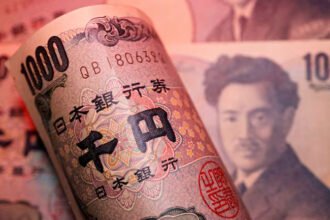BENGALURU, Sept 3 (Reuters) – Long positions on India’s rupee were sharply raised to a three-year high, a Reuters poll found, as the central bank cut back on dollar-buying, while a weaker greenback and encouraging economic recovery signs propped up bullish bets on other Asian currencies.
The fortnightly poll of 13 respondents showed investors held long positions on all nine Asian currencies for the first time since late January, before the COVID-19 pandemic dealt its devastating economic blow.
Sign up here.
The rupee has appreciated close to 3% over the past two weeks after the central bank cut back on aggressive dollar-buying it has been undertaking in recent months to build reserves and keep the currency in check to help exports and its virus-hit economy.
“A sustained rally in the rupee is unlikely,” BofA Global Research said in a note this week, as domestic demand and movement increase and the government pushes local production.
Long bets on the Chinese yuan , South Korea’s won , Singapore’s dollar and the Malaysian ringgit were all raised to their highest since early 2018.
The biggest risk to the yuan and the Chinese recovery comes from worsening relations with the United States. Goldman Sachs said this week that despite tensions, the trade deal the two signed in January looks unlikely to break down this year.
The rupiah is an interest rate carry trade favourite.
The Asian currency positioning poll is focused on what analysts and fund managers believe are the current market positions in nine Asian emerging market currencies: the Chinese yuan, South Korean won, Singapore dollar, Indonesian rupiah, Taiwan dollar, Indian rupee, Philippine peso, Malaysian ringgit and the Thai baht.
The poll uses estimates of net long or short positions on a scale of minus 3 to plus 3. A score of plus 3 indicates the market is significantly long U.S. dollars.
The figures include positions held through non-deliverable forwards (NDFs).
The survey findings are below (positions in U.S. dollar versus each currency):
Reporting by Nikhil Kurian Nainan in Bengaluru; Editing by Subhranshu Sahu
Our Standards: The Thomson Reuters Trust Principles.




















